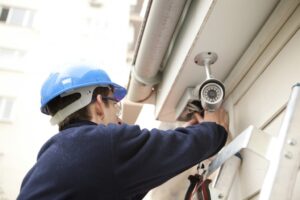Electric sauna heaters have become an essential component in modern home saunas due to their efficiency, ease of use, and advanced features. Unlike traditional wood-burning options, electric heaters provide a clean, controlled heating experience with minimal maintenance. As home wellness continues to gain popularity, understanding the mechanics and benefits of electric sauna heaters for sale can help individuals make informed choices when creating a personalized sauna environment.
How Electric Sauna Heaters Work
At the core of an electric sauna heater is a set of resistive heating elements, often made of stainless steel or other durable metals. These components become incandescent as an electrical current goes through them, emitting thermal energy throughout the sauna room. Sauna stones, arranged one on top of the other or next to these conductors, assimilate the heat and diffuse it uniformly across the chamber.
Electric sauna heaters typically connect to a thermostat or sauna control panel that regulates temperature, session duration, and safety features. Many models come with preset programs, timers, and even Wi-Fi connectivity for remote operation.
Advantages of Electric Sauna Heaters
The setup of electric heaters is very easy, unlike traditional heaters and stoves. This makes them especially suitable for indoor home saunas or in areas where wood smoke may not be permitted.
Electric sauna heaters are also highly customizable, with a wide range of sizes, shapes, and power capacities. Wall-mounted, floor-standing, and concealed options allow for flexibility in design and space optimization. Some models are even designed to fit under benches, providing a minimalist and sleek look while preserving functionality.

Additionally, electric heaters are environmentally efficient. Users can add timers to these heaters and they have easy-to-use controls, so energy use is reduced significantly. Some units include energy-saving modes or Eco functions to reduce power consumption without compromising the sauna experience.
Key Considerations Before Installation
While electric sauna heaters offer many benefits, there are a few essential considerations for optimal performance and safety. First, electrical requirements must be evaluated. Depending on the heater’s power output (measured in kilowatts), a dedicated electrical circuit and proper wiring are necessary. Readers are advised to hire professional electricians to install and set up the electric heater.
Room size and insulation play a critical role in choosing the right heater. Heaters are rated for specific cubic footage, and selecting one that is either too powerful or too weak can result in inefficient heating or energy waste.
Another consideration is heater placement. Whether wall-mounted or freestanding, the position of the heater should allow for safe operation, adequate air circulation, and accessibility for pouring water on the stones. Clearance from wooden surfaces and other flammable materials must also be maintained according to the manufacturer’s guidelines.
Trends in Electric Sauna Heater Technology
In recent years, electric sauna heaters for sale have integrated smart features and modern design. Innovations such as touchscreen controls, mobile apps, voice activation, and energy monitoring are becoming increasingly common. Some models offer precision control over humidity levels and multi-user settings.
Additionally, hybrid models are emerging, combining electric heating with infrared panels for dual heating experiences. This blend allows users to benefit from both traditional sauna heat and deeper infrared penetration, catering to diverse wellness needs.





More Stories
Top Christian Jewelry Trends In 2026: Rings That Inspire
Choosing the Right Home Sauna Kit
Tips for Throwing the Axe Properly